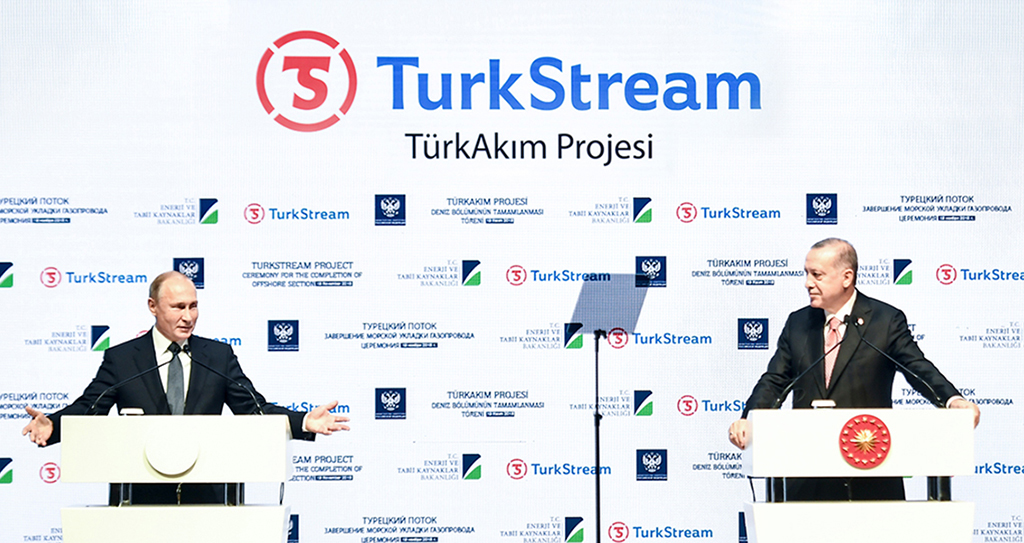Traces of the Syrian war in Turkey
For days, both Syrian public opinion and the world have been discussing the question of “What is Turkey doing in Idlib, Syria?” If you are really curious about this question, you must have been born after 2015. Turkey has intervened in northern Syria for both humanitarian and security reasons due to a number of problems, such as nearly 4 million refugees coming to the country during the nine-year war, instability spreading from Syria and dozens of people killed in missile strikes on Turkish soil, which were launched from across the Syrian border.
More


Is Sochi 2.0 possible?
The deadline for Bashar Assad’s retreat from Idlib has passed. Turkey remains committed to the Sochi agreement..
More
Russia's eagerness to have a presence in the Mediterranean is an old, well-known and deep-rooted policy. Syria, the country that could offer Russia the best chance of reaching the Mediterranean, presented an incredible opportunity for the country to implement its policy of reaching warmer seas when Bashar Assad called for help from Moscow in 2015. Russia has already developed good relations with countries such as Iran and Syria to contain NATO countries and U.S. allies in this region.
The analysis provides an overview of the Greek security policy in the Eastern Mediterranean since the failure of the latest round of Cyprus peace talks in July 2017 and highlights the continuity in the strategies employed by Greece to head off the perceived Turkish threat in the region.
Turkey faces growing pressure to retreat from three locations: Idlib, where Turkish forces are trying to prevent a humanitarian catastrophe; Libya, with which the Turks concluded a defense pact; and the Eastern Mediterranean, where Turkey is defending its rights under international law.
Turkey is fighting on three fronts to manage the Idlib crisis: a military operation, diplomacy and international public opinion.
Europe cannot remain indifferent to Idlib crisis
Even though the Syrian crisis continues to influence politics in the Middle East and the global balance, the European Union and major European powers, like the U.K., Germany and France, have continued to be the most reluctant and ineffective actors dealing with the crisis.
More


The sole axis of Turkey's foreign policy
There is an ongoing debate on Turkey's foreign policy decisions vis-a-vis the brewing crisis in Idlib. A rhetorical whirlpool has emerged around tensions with Russia, the significance of U.S. and EU statements, and Turkey's homework for Idlib.
More
President Recep Tayyip Erdoğan described last week's regime attack in Idlib that claimed eight Turkish lives, as a "turning point" in the Syrian civil war. In addition to giving Bashar Assad time to retreat beyond the Turkish military observation posts by the end of the month, Erdoğan pledged that Turkey would push the regime forces away on its own if necessary.
The Syrian civil war has always had great potential to worsen any day. Since May 2019, the Bashar Assad regime has been pummeling the Syrian opposition's last holdout in the northwestern province of Idlib.
Long-standing tension between Turkey and the Bashar Assad regime just turned into a hot conflict. At this rate, everything else will take a backseat to military operations. The critical question is whether Turkey has moved to the "second" stage in Idlib – holding territory, reinforcing observation posts and exercising control around them, and enforcing a safe zone, 30-40 kilometers deep, for Syrian refugees and displaced persons.
Despite supporting opposite sides, Turkey and Russia have maintained dialogue for the last several years in the Syrian crisis. Together with Iran, another Bashar Assad supporter, they initiated the Astana Process. They have taken several significant steps to lessen the level of violence in the country. However, the Assad regime has insistently violated the cease-fire and continued its attacks against the opposition and civilian targets.
Hardly a day goes by without the Bashar Assad regime bombing hospitals, schools and bakeries in Idlib. Since the Jan. 12 cease-fire, more than 130 civilians have died in military operations that undermine both Astana and Sochi peace deals.
German Chancellor Angela Merkel, on a diplomatic offensive since the Berlin conference, visited Istanbul on Friday. The wide range of topics on her agenda included bilateral trade, the European Union, the situation in Idlib, the proposed safe zone, the Eastern Mediterranean, Libya and refugees, all of which stressed the importance of strengthening German-Turkish cooperation.
Turkish efforts to provide constructive solutions to Libya have pushed the international community to add crisis to their agenda
Public scrutiny of foreign policy is the backbone of democracy. Criticism, when firmly rooted in a rational analysis of the balance of power and national interest, can be constructive. However, when critiques resort to populism, however, they become ideological.
Libya's putschist Gen. Khalifa Haftar left the negotiating table in Moscow last week, putting off the prospect of a cease-fire until this weekend's Berlin conference . The man trying to topple Libya's internationally recognized, legitimate government did so under pressure from the United Arab Emirates. He denied Russian President Vladimir Putin his diplomatic accomplishment, fueling disappointment and anger in the Kremlin.
TurkStream substantially contributes to bringing to the foreground an aspect of energy sources that strengthens cooperation and provides economic benefit rather than conflict.
With Hungary, Bulgaria and Serbia to depend on TurkStream, Turkey’s importance to increase in terms of energy security
The conduct of German authorities toward terrorist groups varies as the country favors some, such as the YPG, hesitating to hold the terrorists accountable under the law and disregarding judicial requirements.
There will be a lot of questions about the state of global politics in 2020. The unpredictability and uncertainty of superpower behavior and instability of the international system generate a lot of question marks about the potential developments set to take shape in the coming year. Here are some of the issues and areas that we will continue to watch during 2020.

















